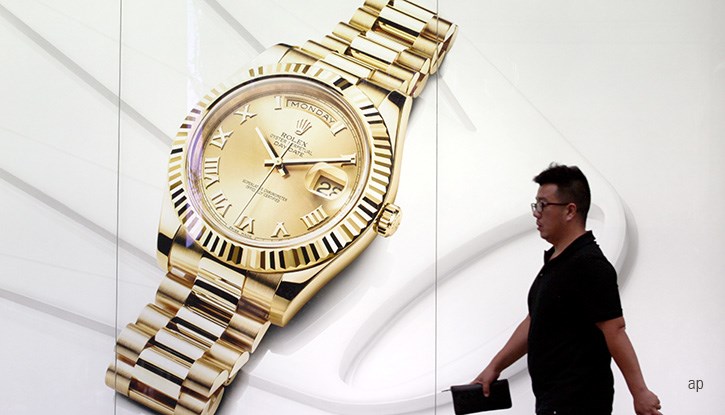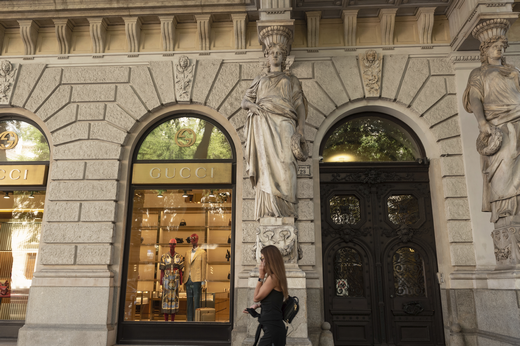
In May 2020 we asked the question, “Have Consumer Habits Changed Forever?” and a year on, the answer is: yes and no. But even the experts don’t know exactly which ones are here to stay and which ones we’ll leave behind as lockdown eases. As part of our week-long look at investing themes, we try to forecast the future of spending.
In hindsight, consumer companies were the place to be last year – enforced time at home saw a spike in music and TV subscriptions like Netflix (NFLX) and Spotify (SPOT), closed restaurants meant a roaring trade for the likes of Just Eat (JET), while Amazon (AMZN) boomed as non-essential retailers closed their doors. These companies were hot in 2020 but many have struggled to maintain the pace of growth in 2021. But that doesn’t mean the trends they are tapping into won’t be profitable for investors in the long term
Trends for 2021: Pubs, Cars and Luxury Goods
The Bank of England is now forecasting that 10% of the circa £160 billion saved by UK consumers since lockdown will be spent - double what it predicted earlier this year. For those workers who’ve managed to save, this is a nice position to be in – and good for retailers, who are desperate to play catch-up after a miserable 2020.
The first thing people will spend money on, according to Artemis UK Select manager Ed Legget, is experiences they’ve been deprived of, such as visits to pubs and restaurants. Big ticket items like cars and houses are also likely to be on people’s shopping lists, he says. Shoppers are also in upbeat mood on the continent, says Stefan Gries, manager of the 5-star rated BlackRock Greater Europe Investment Trust (BRGE). “The European consumer is generally in a very good place as well,” he says. Gries also expects restaurants, travel and car sales to benefit from the re-opening in Europe.
Luxury is another area where fund managers expect shoppers with savings to spend their money this year. The sector has been remarkably resilient despite the restrictions on international travel, which brought airport sales of handbags, watches and jewellery to an abrupt halt. The sector's strength has been surprising, says Jack Neele, manager of the Silver-rated Robeco Global Consumer Trends fund, which gained 45% last year. He thinks the step-up in international travel and opening of physical stores will benefit the sector even further this year, as people are more reluctant to buy expensive items through online channels. They may also be wanting to spend profits on crypto and other financial assets on physical goods, he says.
Handbags and Watches: Not Just for the Rich?
Luxury brands have also managed to push through price increases (more of which later), as customers fear goods will be even more expensive next year - and as alternative assets boom, they are also seen as investments. “It’s a very powerful business model,” Neele says. Even with re-opening, market estimates for luxury growth rates this year are still on the conservative side, says Swetha Ramachandran, manager of the GAM Luxury Brands fund.
The perception that luxury goods are only for the rich is losing traction, some managers say. BlackRock’s Gries says luxury brands are now using social media and data analysis to target younger shoppers, meaning “there’s still a very large addressable market for them to go after”.
But Chris Elliott, manager of the TB Evenlode Global Equity fund doesn't think the "ordinary shopper" will have much impact on the sector this year. "While the average consumer may have greater disposable income post-lockdown, most high-end luxury companies do not depend on [them] for sales growth. Instead, it will be the return of the high-spending luxury tourist that most moves the needle as borders reopen."
Expect Price Rises and Shortages
One unexpected side effect of the sharp uptick in economies is a shortage of consumer goods. Across the world, there’s a dearth of semiconductors, essential components in smartphones and electric cars. There's even talk of a beer shortage in the UK. When you head back to the high street, there might be fewer shops and less choice. “That £100 billion buys you a lot of stuff, but is there enough stuff for people to buy?,” asks Legget.
Shortages and price rises often go hand in hand. BlackRock’s Gries says European car manufacturers have been able to push through price increases for the first time in years, and consumers have so far been willing to pay them. Fears of rising inflation may also play on people’s minds, encouraging them to buy items now in case they're more expensive next year.
Trends That Are Here to Stay?
Long-term investors don’t want to be chasing last year’s story, and that could be the case with the sudden switch from “lockdown favourites” to “re-opening trades”. Robeco’s Neele is most enthusiastic about the growth in digital payments, a trend that came into its own last year as paying with cash became taboo. Computer games and food delivery apps were big beneficiaries of lockdown trends, and he expects this to continue, although not at 2020 levels.
What other 2020 trends could become permanent? Neele holds US pet store Chewy (CHWY) in the fund’s top 10 holdings. (Morningstar analysts describe the company as “an online destination for pet parents”). As more people have bought pets during lockdown, the industry has become big business. The share price of Pets at Home (PETS) is up 70% on last year and sector analysts expect the pet care industry to keep growing in the coming years. For first-time dog and cat owners, this could be a perfect example of Warren Buffett's maxim to "buy what you know". Let's hope for Fido's sake that pet mania is not just another lockdown fad.



























